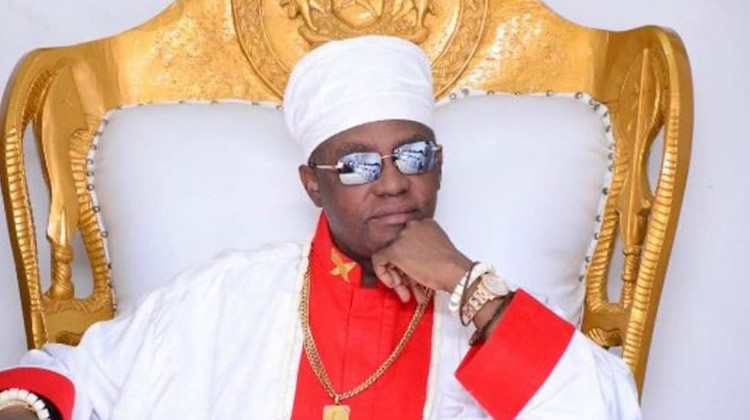The Benin Kingdom, a prominent historical and cultural entity in Nigeria, witnessed a significant shift in its traditional leadership structure with the appointment of Chief Emmanuel Iyase as the Okao Eguae for the Ologbo and Ehor Dukedoms. This appointment, made by His Royal Majesty, Oba Ewuare II, the reigning Oba of Benin, marked a departure from traditional practice, as Chief Iyase became the first individual from the Benin Palace to hold this position. The Okao Eguae serves as a district head, representing the Oba’s authority in specific areas, and this particular appointment carried significant weight due to the recent suspension of the Enigie (Dukes) of both Ologbo and Ehor. The context of this appointment, steeped in historical tradition and contemporary challenges, underscores the complexities of maintaining stability and authority within the Benin Kingdom.
The installation of Chief Iyase as Okao Eguae followed the suspension of Prince Owen Jackson Akenzua, the Enogie of Ologbo, and Chief D. E. Igiehon, the Enogie of Ehor, along with 69 other Dukes. These suspensions stemmed from allegations of rebellion against the Benin monarchy, highlighting the ongoing tensions between centralized authority and local leadership within the Kingdom. The Oba’s decision to appoint an Okao directly from the Palace signifies a move to consolidate control and ensure loyalty within these Dukedoms. By placing a trusted representative from within his own court, Oba Ewuare II aimed to re-establish order and reinforce the traditional hierarchy within the impacted areas.
The Ekpomwen-abor ceremony, a customary expression of gratitude following the conferment of a chieftaincy title, provided the backdrop for Chief Iyase’s formal appointment. Held at the Ugha Ozolua axis of the Oba Palace in Benin City, the ceremony was imbued with traditional significance. During the ceremony, Oba Ewuare II addressed the newly appointed Okao, emphasizing the importance of ethical conduct and the avoidance of any actions that could undermine the authority of the Oba or bring disrepute to the Dukedoms. This counsel underscored the weight of responsibility placed upon Chief Iyase and the expectation that he would uphold the integrity of the Benin monarchy.
The Oba’s address went beyond mere cautionary advice. He actively encouraged Chief Iyase to foster collaboration and build strong working relationships with the Edionwere (elders) of the Ologbo and Ehor Dukedoms. Acknowledging the importance of local knowledge and established community leadership, the Oba emphasized the necessity of cooperation between the newly appointed Okao and the existing power structures within the Dukedoms. This directive also highlighted the importance of maintaining a balance between the Oba’s centralized authority and the autonomy of local governance. Furthermore, the Oba advised Chief Iyase to seek guidance and support from key functionaries within the Benin monarchy’s authority, ensuring he had access to the resources and counsel necessary to navigate the complexities of his new role.
In response to the Oba’s pronouncements, Chief Iyase, accompanied by his family and well-wishers, expressed his profound gratitude for the appointment. He pledged to uphold the highest standards of conduct, prioritizing the well-being of the people and the overall development of the Ologbo and Ehor Dukedoms. This commitment to service and development resonated with the core principles of traditional leadership within the Benin Kingdom. Chief Iyase’s vow to honor the responsibilities bestowed upon him signified his acceptance of the significant role he was about to play in the ongoing narrative of the Benin Kingdom.
The appointment of Chief Iyase as Okao Eguae represents a pivotal moment in the history of the Ologbo and Ehor Dukedoms. It reflects the Oba’s commitment to maintaining order and stability within his kingdom, particularly in the face of challenges to his authority. Chief Iyase’s acceptance of the role, coupled with his pledge of service and ethical conduct, suggests a promising future for the people of these Dukedoms. His success will depend not only on his individual capabilities but also on his ability to navigate the complex dynamics of traditional leadership within the Benin Kingdom, forging strong relationships with local elders and key figures within the Oba’s court. This appointment underscores the enduring significance of traditional institutions within contemporary Nigerian society, highlighting the ongoing interplay between centralized power and local governance.














